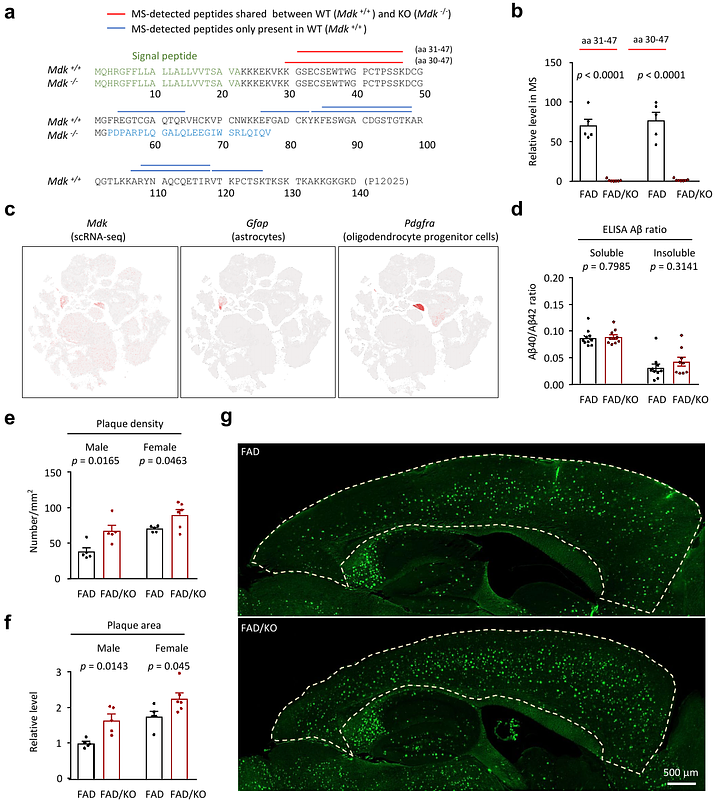Midkine Attenuates Aβ Fibril Assembly and Amyloid Plaque Formation

Midkine Attenuates Aβ Fibril Assembly and Amyloid Plaque Formation
Zaman, M.; Yang, S.; Huang, Y.; Yarbro, J. M.; Hao, Y.; Wang, Z.; Liu, D.; Harper, K. E.; Soliman, H.; Hemphill, A.; Harvey, S.; Pruett-Miller, S. M.; Stewart, V.; Tanwar, A. S.; Kalathur, R.; grace, c. r.; Turk, M.; Chittori, S.; Jiao, Y.; Wu, Z.; High, A. A.; Wang, X.; Serrano, G. E.; Beach, T.; YU, G.; Yang, Y.; Chen, P.-C.; Peng, J.
AbstractProteomic profiling of Alzheimer\'s disease (AD) brains has identified numerous understudied 34 proteins, including midkine (MDK), that are highly upregulated and correlated with A{beta} since the 35 early disease stage, but their roles in disease progression are not fully understood. Here we 36 present that MDK attenuates A{beta} assembly and influences amyloid formation in the 5xFAD 37 amyloidosis mouse model. MDK protein mitigates fibril formation of both A{beta}40 and A{beta}42 peptides 38 in Thioflavin T fluorescence assay, circular dichroism, negative stain electron microscopy, and 39 NMR analysis. Knockout of Mdk gene in 5xFAD increases amyloid formation and microglial 40 activation. Further comprehensive mass spectrometry-based profiling of whole proteome and 41 detergent-insoluble proteome in these mouse models indicates significant accumulation of A{beta} 42 and A{beta}-correlated proteins, along with microglial components. Thus, our structural and mouse 43 model studies reveal a protective role of MDK in counteracting amyloid pathology in Alzheimer\'s 44 disease.